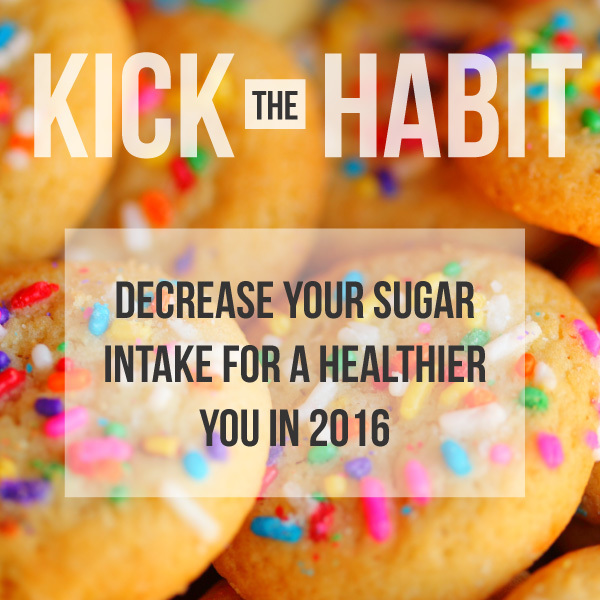
The foods we eat have a dramatic impact on how we feel. We would not expect our car to perform well unless we put in quality fuel. Our bodies, too, will perform best with quality foods. If you aim to live a healthier lifestyle, we want to help. To feel well, you must eat well. Let’s start with the topic of sugar- including its detrimental effects and how you can kick the habit this year.
The Problem With Sugar
The U.S. Department of Agriculture reports that the average American consumes roughly 47 pounds of cane sugar and 35 pounds of high-fructose corn syrup each year. That’s roughly 20 teaspoons of sugar per day, or over 300 calories. Why is this a bad thing? Because sugar is classified as a refined carbohydrate and is easily converted to fat. Eating too much sugar is linked to weight gain, obesity, type II diabetes and heart disease. When the body processes sugar, it also creates arachidonic acid that intensifies pain and initiates disease.
So why do we still eat sugar when we know it’s so bad for us? Simply put, because it is highly addictive. Routinely eating products that contain sugar leads to a vicious sugar-craving cycle. When we eat sugar, it is absorbed into our blood stream and travels to the brain. Sugar in the brain initiates production of a chemical called serotonin. This chemical produces a sense of happiness and well-being. The ingested sugar also triggers insulin production, which rapidly breaks down the sugar to move it out of our blood stream. As our blood sugar levels fall, we move from a hyperactive “high” into more of a tired and irritable “low”. Concentration levels fall and our cells become acidic. Our brain sends a message that we need more sugar, and the cycle begins again.
This cycle produces peaks and valleys of insulin production, which increases our risk of diabetes, obesity, arthrosclerosis, cancer and other chronic diseases. It also decreases our ability to synthesize vitamins, resulting in a slowed metabolism that can lead to obesity and lowered immunity. To combat these problems, we should dramatically reduce our intake of simple sugars. It’s recommended by the American Heart Association that men consume less than 37.5 grams or 9 teaspoons per day, and women to consume less than 25 grams or 6 teaspoons per day.
Decrease Sugar Intake by Avoiding These Foods:
Sugar is hidden in MANY foods. We need to be especially vigilant to limit the following high-sugar foods:
- Baked Goods (Cookies, Cakes, Pies, Sweets, Desserts, etc)
- Soft Drinks and Juices
- Canned Fruits
- Ice cream
- Jelly and Jam
- Catsup and Relish
- Sweet Alcoholic Beverages
- Canned Baby Food
Decreasing your intake of processed foods will also help you reduce sugar intake. If you do consume some processed or packaged foods, be mindful of the many alternate names for sugar, including; sucrose, high fructose corn syrup (HFCS), dehydrated cane juice, fructose, glucose, dextrose, syrup, cane sugar, raw sugar, and corn syrup.
Ways to Stop the Addiction
- Commit to a detox. Cut out all forms of sugar, artificial sweeteners and packaged foods for a week and see if your body still craves it. You’ll probably be surprised at how little you miss it after a few days. But like any addiction, you need to eliminate it completely to get “clean”.
- Read Nutrition Labels. Be aware of the amount of sugar in a serving. If any type of sugar is listed within the first 3 ingredients on the label, avoid it.
- Manage your stress. Cortisol levels rise when you are stressed and cause an increase in hunger that can fuel sugar cravings.
- Get more sleep. Lack of sufficient sleep is linked to increase hunger and refined carbohydrate cravings.
- Drink more water. Stay hydrated to control hunger, but avoid sugar-spiked sodas, juices, coffees and teas.
We encourage you to follow the laws of science to improve your diet rather than mainstream marketing-based suggestions. This will help you feel better, have higher energy levels, reduce your pain and lower your risk of disease. Stay tuned for more of our “Healthier You” tips to help guide you on the path to better health.




